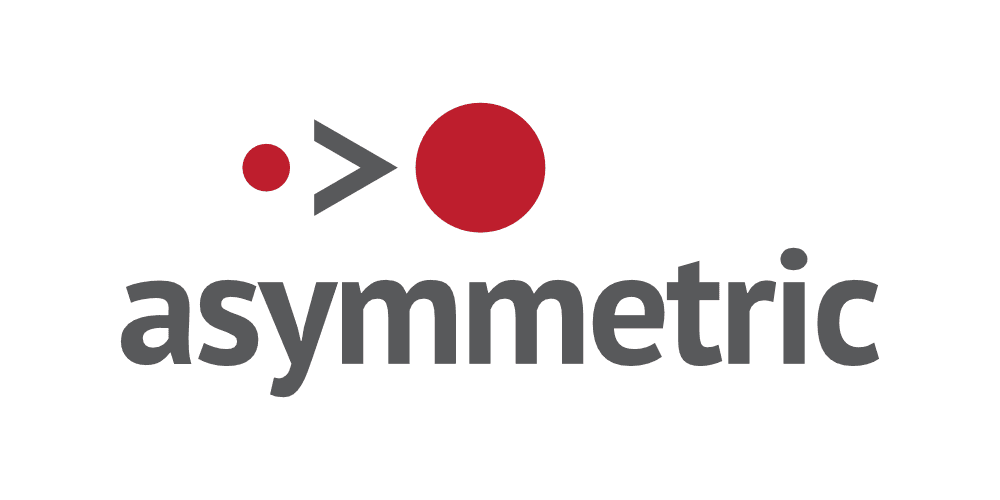Are you looking to maximize your marketing budget by effectively allocating it? This article offers actionable budget marketing strategies. You’ll learn to allocate resources effectively, measure ROI, and avoid common budget mistakes. These insights aim to help your business grow without overspending.
Key Takeaways
- An effective marketing budget serves as a roadmap for aligning marketing initiatives with business goals and influencing decision-making regarding spending on various marketing activities.
- Setting SMART goals ensures that marketing objectives are clear and measurable, allowing businesses to allocate resources effectively and achieve targeted outcomes.
- Conducting thorough market research informs budget decisions and strategy, enabling businesses to effectively understand demand, competition, and audience preferences for optimal marketing resource allocation.
- Understanding the customer journey is crucial for optimizing marketing efforts and enhancing conversion rates.
Introduction to Marketing Budget
A well-planned marketing budget is essential for businesses to achieve their goals and objectives. It outlines the total amount allocated for various marketing efforts, including digital marketing, traditional marketing, and other marketing activities. An effective marketing budget should be based on thorough market research, a deep understanding of the target audience, and an analysis of competitors’ marketing strategies.
Budget optimization is crucial to ensure marketing dollars are spent efficiently and effectively. A comprehensive marketing budget should include allocations for marketing talent, technology, content creation, paid advertising, and other marketing initiatives. By carefully planning and optimizing your marketing budget, you can ensure that your marketing efforts are aligned with your business goals and drive growth and profitability.

A marketing budget outlines intended marketing spending over a specific period. It serves as a forecast of expected expenses and, once approved, guides spending decisions.
It details the amount allocated to various marketing activities, including paid advertising, staff salaries, automation software, and the digital marketing budget.
Using a marketing budget template can be highly beneficial for planning and tracking expenditures. These templates help businesses allocate their marketing spend effectively, ensuring optimal results.
An effective marketing budget is essential for creating a strategy and aligning marketing efforts with overall business goals. Outlining all planned projects for the short and long term helps companies ensure effective spending and optimize their marketing efforts.
Marketing allocations typically range from 2% to 10% of sales, varying by industry and size.
This means the budget significantly affects what a marketing team can accomplish. Many businesses underestimate marketing expenditures, believing marketing savings will maintain costs, but this can lead to underfunded marketing efforts and missed opportunities.
Determining an appropriate marketing budget can be challenging for small businesses due to variations in industry, location, and business goals.
A well-structured marketing budget is crucial to the marketing team’s success, serving as a roadmap to success. Companies can optimize their marketing spending by adjusting their budget based on seasonal demand fluctuations.
For instance, increasing the budget during peak seasons can help capitalize on higher consumer demand, while reducing it during off-peak times can conserve resources.
Creating a marketing budget involves more than allocating funds; it’s about making strategic decisions that drive growth and profitability. Understanding a marketing budget's components and significance allows businesses better to align their marketing initiatives with their overall strategy and achieve their objectives.
Assessing Marketing Needs
Assessing marketing needs is a critical step in developing a marketing budget. Businesses should identify their marketing goals, target audience, and preferred marketing channels. Conducting thorough market research and analyzing competitors’ marketing strategies can provide valuable insights to inform your marketing budget decisions.
Understanding customer needs and preferences is essential to developing effective marketing strategies and allocating your marketing budget accordingly. Marketing teams should regularly review and assess their marketing needs to ensure that the marketing budget is optimized and aligned with business objectives. This ongoing assessment helps make data-driven decisions that enhance the effectiveness of your marketing efforts.
Setting Clear Marketing Goals
Setting clear and measurable marketing goals is the cornerstone of an effective marketing strategy. Without well-defined objectives, resources can be misallocated, leading to suboptimal results.
One of the most effective ways to set marketing goals is using the SMART framework, which stands for Specific, Measurable, Achievable, Relevant, and Time-bound. SMART goals provide clear benchmarks for success and allow for precise monitoring and adjustment of marketing efforts. Setting clear goals also helps plan and optimize future campaigns based on past performance and insights.
Aligning marketing objectives with broader business goals is vital for effective budget allocation. For instance, if a company’s primary business goal is to increase market share, the marketing objectives might include driving sales, increasing leads, and raising brand awareness.
Ensuring that marketing goals align with the overall business strategy allows companies to create a focused marketing plan that effectively utilizes available resources.
Incorporating SMART goals into your marketing budget planning enhances resource management and growth analysis. It helps create a marketing budget based on realistic expectations and achievable targets.
Setting clear marketing goals enables businesses to develop efficient and effective budgets to drive desired outcomes.
Conducting Market Research
Thorough market research is essential to understanding demand and competition, which informs budget and strategy decisions. Proper marketing funding is crucial for business growth and profitability, as insufficient allocation often leads to failure.
Incorporating market research into budgeting allows businesses to align their strategies with upcoming objectives.
Understanding your target market is critical as it influences messaging, branding, and budget allocation. Demographic research, customer needs analysis, and surveying non-customers can provide significant insights.
For example, focus groups allow for real-time feedback from multiple participants, enriching the research process. Content marketing research can help organizations develop engaging and lead-generating materials tailored to their audience.
Knowing your competitors provides valuable insights that can guide your marketing strategy. Understanding competitors’ actions helps businesses identify market gaps and opportunities.
Researching audience preferences is also necessary to determine the best marketing channels. This comprehensive approach ensures that the marketing budget is based on accurate data, enhancing its effectiveness.
Practical cost estimation in marketing requires a clear understanding of market dynamics and competitor actions. With accurate market research, businesses can create a marketing budget that effectively allocates resources to the most promising opportunities, ensuring a higher return on investment.
Developing a Cost-Effective Marketing Plan

A cost-effective marketing plan aligns marketing strategies with business objectives to achieve optimal ROI.
Marketing success heavily relies on optimizing resources for results and growth. One of the most effective low-cost strategies is social media marketing, which allows businesses to reach a broad audience with minimal investment.
Establishing a professional website is the foundation for various marketing efforts and can be done affordably.
It is also important to set a budget for social media ads and ad campaigns to manage spending and optimize campaign performance.
Email marketing remains one of the most effective low-cost strategies for engaging a large audience. By providing relevant information and addressing consumer concerns, content marketing helps build trust with consumers.
Traditional marketing methods, such as distributing flyers, are still effective for businesses with tight budgets. Creating a referral program can leverage existing customers to attract new ones, enhancing marketing effectiveness.
A budget is crucial as it redirects spending toward successful channels and ensures funds for other needs. Focusing on cost-effective strategies allows businesses to maximize their marketing spend and achieve goals without overspending.
Choosing the Right Marketing Channels

Choosing the proper marketing channels, including social media platforms, is crucial for effectively reaching your target audience. Understanding your audience’s preferences and behaviors is critical to selecting the most effective marketing channels.
Different channels provide unique advantages, making it essential to align them with your audience’s interests. For example, social media marketing is particularly effective for enhancing brand visibility when selecting the right platforms based on audience interests.
Businesses should choose marketing channels carefully to reach their target audience effectively. They can invest in digital marketing resources or traditional methods like radio or TV ads.
Search engine optimization is vital in improving visibility in search engines and attracting potential customers. Email marketing remains popular because it informs customers and offers them control over their subscriptions.
Events and sponsorships are effective for face-to-face interactions, enhancing brand visibility, and building a positive brand image. Additionally, SMS marketing has become increasingly popular due to higher engagement rates and preference for timely messages.
By carefully selecting the right mix of marketing channels, businesses can maximize their marketing efforts and achieve their marketing objectives.
Traditional Marketing
Traditional marketing includes offline marketing activities such as print, television, and radio advertising. These methods can be an effective way to reach a wider audience and build brand awareness. However, traditional marketing can be costly and may not provide the same level of targeting and measurement as digital marketing.
When deciding whether to allocate marketing budget to traditional marketing, businesses should consider their target audience and marketing goals. Traditional marketing can be used with digital marketing to create a comprehensive marketing strategy that leverages the strengths of both approaches. Businesses can maximize their reach and impact by balancing traditional and digital marketing efforts.
Estimating Marketing Costs
Estimating marketing costs accurately is essential for creating a realistic marketing budget.
Techniques for estimating marketing costs include:
- Revenue-based methods
- Competition-matched methods
- Top-down methods
- Goal-driven methods
A company with moderate growth should allocate 10%-15% of its total revenue to marketing to ensure sustainable investment.
Marketing costs encompass selling, promoting, developing, and marketing a brand.
Marketing incurs additional expenses such as advertising and software. Other costs include services, personnel, and content creation. Ad budgets often fluctuate due to rising digital advertising costs and changing customer expectations.
Advertising costs include press releases, printed materials, radio, TV, and event sponsorship. To accommodate potential overruns, first-time ad budget creators are advised to set budget caps slightly higher than expected costs.
Budget allocation methods vary, including percentage of revenue, competitive parity, objective-based budgeting, and ROI-based budgeting. Companies with stable growth should budget between 2% % and 10% of their revenue for marketing expenses.
Accuracy in estimating marketing costs is critical as the budget must be adhered to after approval. These techniques help businesses create a marketing budget that allocates resources effectively and maximizes ROI, providing a clear marketing budget breakdown. Investing in a robust marketing tech stack can also influence marketing costs and should be considered in budget estimations.
Understanding Budget Models
Several budget models can be used by businesses to allocate their marketing budgets, including the 70/20/10 rule. This rule allocates 70% of the marketing budget to proven marketing strategies, 20% to innovative marketing strategies, and 10% to experimental marketing initiatives. This approach ensures a balanced investment in reliable and creative marketing efforts.
Businesses can also use other budget models, such as percentage of revenue, competitive parity, and objective-based budgeting, to allocate their marketing budget. Understanding these budget models can help businesses make informed decisions about allocating their marketing budget effectively. Marketing teams should regularly review and adjust their budget models to ensure the marketing budget is optimized and aligned with business objectives.
Allocating Your Marketing Budget
Marketing budget allocation involves designating funds for various marketing expenses. This distribution is crucial for effective financial planning in marketing.
One practical guideline for budget allocation is the 70/20/10 rule, which suggests that 70% of the budget should be invested in proven marketing tactics, 20% in emerging strategies, and 10% in experimental initiatives. This approach ensures a balanced investment in reliable and innovative marketing efforts.
Traditional marketing typically receives 20-30% of the overall marketing budget, while digital marketing absorbs at least half. Evaluating past marketing campaign performance is essential, as success in previous initiatives helps inform and optimize future budget decisions. Analyzing past performance enables businesses to allocate their marketing budget more effectively, avoiding resource waste on ineffective strategies. Regularly reviewing and optimizing the marketing funnel can help make informed budget allocation decisions.
Allocating your marketing budget effectively involves more than just distributing funds; it’s about making strategic decisions that drive growth and profitability. Following the 70/20/10 rule and evaluating past performance helps businesses create a marketing budget that maximizes ROI and achieves goals.
Utilizing Free and Low-Cost Marketing Tools

Utilizing free and low-cost marketing tools can significantly enhance your marketing efforts without breaking the bank. Free email marketing platforms, like HubSpot and Sendy, provide essential functions for small businesses without the high costs.
Email marketing tools can enhance campaigns through features like A/B testing and audience segmentation. Platforms like Mailchimp offer automated email functionalities, which save time and improve engagement.
Many free marketing tools include templates to simplify content creation and enhance visual appeal.
Content creation templates can help businesses develop professional-looking materials quickly. Free tools’ analytics capabilities help track engagement metrics, optimizing future marketing strategies.
Low-cost tools can integrate with other platforms, allowing for streamlined marketing efforts across channels. However, costs can quickly add up, so try free options first.
A robust content management system can also be valuable for managing and optimizing content marketing efforts.
Leveraging free and low-cost tools enables businesses to maximize their marketing spend and achieve goals without overspending. These tools provide valuable functionalities that can enhance marketing campaigns and drive growth.
Tracking Marketing Expenses
Tracking marketing expenses is crucial for successful marketing management. Monitoring marketing expenditures prevents overspending and allows for necessary adjustments. It is also essential for adhering to the overall budget. Effective project management strategies can also help track and manage marketing expenses more efficiently.
Tools like the Paid Advertising Budget Template help track monthly and quarterly advertising expenses effectively.
The Year-to-Date Summary of Categorical Expenses provides an aggregated summary of expenses by category, tracking remaining funds.
Real-time dashboards can display planned versus actual effort, costs, and other critical metrics for instant assessment. The budget versus actual spend chart helps pinpoint trends and supports informed decision-making. Regularly reviewing and adjusting estimates can help manage marketing expenses and prevent overspending.
Visual breakdowns of fund allocation through charts and summaries enable informed spending adjustments. Tracking expenses related to specific marketing activities is key to adjusting budgets for future projects. Effectively tracking expenses helps businesses stay within budget and optimize marketing efforts.
Technology and Analytics
Technology and analytics play a critical role in marketing budget optimization. Businesses can use analytics tools such as Google Analytics to measure the effectiveness of their marketing campaigns and make data-driven decisions. Marketing automation tools can help streamline marketing processes and improve marketing efficiency.
Customer relationship management (CRM) software can help businesses manage customer interactions and improve customer satisfaction. Marketing teams should regularly review and assess their technology and analytics to ensure they use the most effective tools to optimize their marketing budget and achieve their goals. By leveraging technology and analytics, businesses can enhance their marketing efforts and drive better results.
Measuring ROI and Adjusting Strategies
Measuring ROI and adjusting strategies is essential for maximizing the effectiveness of your marketing budget. Establishing key performance indicators (KPIs) for campaigns is crucial to evaluate marketing ROI.
A digital marketing return on investment ratio of 5:1 is considered good, implying $5 earned for every dollar spent. Customer lifetime value helps evaluate marketing ROI by assessing long-term profitability from customers.
A/B testing on marketing elements can reveal which changes drive higher engagement and conversions. Optimizing landing pages through A/B testing can also reveal which changes drive higher engagement and conversions. By addressing individual needs, personalized marketing strategies can enhance customer engagement and improve ROI.
Monitoring marketing expenses across campaigns helps identify areas of overspending with poor returns. Many marketers focus excessively on acquiring new customers, overlooking the cost-effectiveness of retaining existing ones.
A well-structured marketing budget helps track ROI across various channels, facilitating informed budget adjustments. Measuring ROI and making necessary adjustments helps businesses optimize their strategies and achieve goals.
Common Mistakes in Marketing Budgets
Avoiding common mistakes in marketing budgets is vital for ensuring effective marketing efforts and financial stability.
One frequent mistake is underestimating costs and failing to track expenditures, which leads to budget overruns and financial challenges. Companies may exceed their advertising budgets if campaigns receive more clicks or engagement than predicted. Many marketing teams face challenges in accurately estimating costs and tracking expenditures, leading to budget overruns.
Hidden marketing costs, such as research and message testing resources, can unexpectedly increase budgets, making allocating resources for these activities essential.
Lack of collaboration between marketing and sales teams can lead to ineffective campaigns that do not drive revenue. Establishing a budget tracker allows businesses to manage spending effectively on marketing initiatives. Innovative marketing analytics platforms can help track and optimize marketing budgets, ensuring that resources are used efficiently.
Analyzing previous marketing campaigns can help identify strategies that were effective or ineffective. If marketing efforts show negative ROI, it is crucial to pause those efforts and cut unnecessary costs. Avoiding these common mistakes helps businesses create a more effective budget that drives growth and profitability.
Marketing Budget Examples from Successful Companies

Real-world examples from successful companies can provide valuable insights into effective marketing budget strategies.
For instance, Salesforce allocates 46% of its revenue to sales and marketing, achieving an annual revenue growth of 25%.
In 2018, Tableau allocated 51% of its revenue to sales and marketing, which resulted in a 32% revenue growth the next year. Google’s parent company, Alphabet, invested 8.9% of its revenue into marketing, totaling $22.91 billion.
Microsoft’s sales and marketing investments reached $22 billion in fiscal year 2022, showcasing the importance of substantial marketing investments. Mindbody invested 39% of its revenue in marketing, resulting in a 31% year-on-year growth rate.
These examples demonstrate how effective budget marketing strategies can significantly impact company growth. By examining these examples, businesses can gain insights into how to allocate their marketing budgets effectively. Many successful companies also collaborate with marketing agencies to leverage their expertise and optimize their marketing budgets.
Marketing Budget Templates
Marketing budget templates are essential tools for effectively planning and tracking marketing expenses. They help businesses allocate their marketing spend to achieve optimal results. Incorporating marketing technology into these templates can further enhance their effectiveness.
These templates can be customized for small and medium businesses to simplify planning. Different types of marketing budget templates cater to specific needs, such as PR costs, content marketing, and team development.
A Content Budget Template can be tailored to meet specific organizational needs, ensuring that all aspects of the marketing strategy are covered.
An effective budget management tool is a monthly marketing budget tracker that helps visualize spending.
Marketing budget templates help organize estimated costs and compare projected budgets to actual spending. The template allows you to break up spending over quarters and view year-to-date spending, providing a clear budget overview.
Businesses can use marketing budget templates to ensure their marketing efforts are well-planned and effectively managed.
Frequently Asked Questions About Marketing Budget Strategies
How much should small to mid-sized technology firms allocate for marketing expenditure?
Marketing expenditures for small—to mid-sized technology firms typically constitute 1-6% of their anticipated revenue.
Why is a solid online presence crucial for marketing budget strategies?
A strong online presence is crucial because 70% of buyers perform research before contacting a company. Therefore, it is essential for businesses to be visible and accessible online.
What tools should organizations evaluate for effective marketing budget strategies?
Organizations should evaluate their current marketing tools, including email marketing and customer relationship management systems, to ensure they effectively support their marketing efforts. Collaboration between the marketing and sales teams is also crucial for effective budget planning and execution.
How should companies handle significant changes in their marketing strategy?
When undergoing significant changes, companies must reassess their branding and messaging to align with their marketing budget strategies, ensuring consistency and effectiveness.
Why is a strategy for lead follow-up necessary in inbound marketing budget strategies?
A strategy for lead follow-up is essential as inbound marketing generates more leads, and ensuring they are not neglected can significantly impact the success of marketing campaigns.
Summary
An effective marketing budget is crucial for aligning marketing efforts with business goals and maximizing ROI.
Understanding the components and significance of a marketing budget, setting clear marketing goals, conducting thorough market research, and developing a cost-effective marketing plan are essential.
Choosing the right marketing channels, accurately estimating marketing costs, and effectively allocating the budget can drive growth and profitability.
Utilizing free and low-cost marketing tools, tracking expenses, and measuring ROI are vital practices that ensure your marketing budget is used efficiently. By avoiding common mistakes and learning from successful companies, businesses can create a robust marketing budget that supports their objectives and drives success.
In conclusion, creating a well-structured marketing budget is not just about allocating funds; it’s about making informed strategic decisions that propel your business forward. Take the insights and tips from this guide, apply them to your planning process, and watch your marketing efforts flourish. Incorporating influencer marketing into your strategy can also enhance your marketing efforts and drive better results.
Ready to Optimize Your Marketing Budget?
Building an effective marketing budget is key to driving growth without wasting resources.
Whether a small business or an established brand, making the right strategic moves can elevate your ROI and keep you competitive.
- Need Personalized Advice? Schedule a complimentary consultation today and get expert insights tailored to your business. Book now
- Call us at 608-410-4450 or send us an inquiry here.
- Stay Ahead: Subscribe to our newsletter for more actionable tips and industry insights. Subscribe on the sidebar to your right.
About the author
Mark A. Hope is the co-founder and Partner at Asymmetric Marketing, an innovative agency dedicated to creating high-performance sales and marketing systems, campaigns, processes, and strategies tailored for small businesses. With extensive experience spanning various industries, Asymmetric Marketing excels in delivering customized solutions that drive growth and success. If you’re looking to implement the strategies discussed in this article or need expert guidance on enhancing your marketing efforts, Mark is here to help. Contact him at 608-410-4450 or via email at mark.hope@asymmetric.pro.


